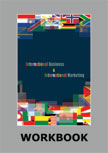Gazprom - Naftogaz Ukrainy Dispute: Business or Politics? |
ICMR HOME | Case Studies Collection
»
Business Environment Case Studies Please note: This case study was compiled from published sources, and is intended to be used as a basis for class discussion. It is not intended to illustrate either effective or ineffective handling of a management situation. Nor is it a primary information source. |
||||||||||
Introduction Contd...
So even if Ukraine was withholding or illegally siphoning off Russian gas meant for Europe, it was Russia that could be sued, and not Ukraine. On January 4, 2006, Gazprom and Naftogaz announced that they had reached a settlement, wherein RosUkrEnergo, a Swiss registered company, agreed to buy the gas meant for Ukraine from Gazprom at $230 per Tcm and supply it to Ukraine at $95 per Tcm after mixing the Central Asian gas bought from Turkmenistan and Uzbekistan at $60-65 per Tcm. Analysts commented that rather than being a concrete settlement, it was more of a face saving deal for both Gazprom and Naftogaz.
9] 'Societe Generale de Surveillance' (SGS), based in
Switzerland, is the world's leading company in inspection, verification,
testing, and certification of materials and products. |
Case Studies Links:-
Case Studies,
Short Case Studies,
Simplified Case Studies.
Other Case Studies:-
Multimedia Case Studies,
Cases in Other Languages.
Business Reports Link:-
Business Reports.
Books:-
Textbooks,
Work Books,
Case Study Volumes.



